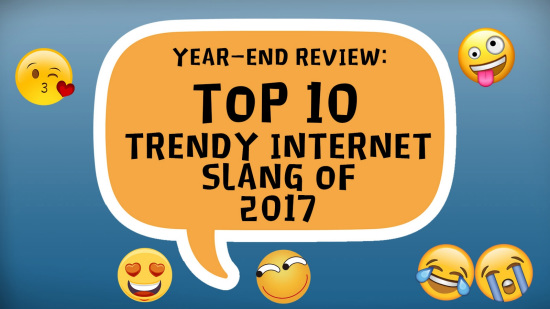
(Photo/cgtn)
2017 witnessed the growth of China's digital communication backed with netizen-favored sticker set.
The Baidu Baike, China's Wikipedia equivalent, revealed a list of the Top 10 Trendy Internet Slang Words and Phrases of 2017.
12 days ahead of 2018, Baidu released the 2017 Chinese Online Search List and 180 Hot Online Searches, a good way to look back on what happened on the Internet this year – to share joys and laughter, and some of the most unforgettable moments with readers.
The list is based on the annual data of Baidu's most commonly searched words over the year by Chinese netizens and most of the popular phrases have been turned into stickers favored by Chinese netizens.
Let's take a look at the year's hottest online phrases and words:
Do you Freestyle?
The most popular Chinese Internet phrase is "Do you freestyle?" "Do you freestyle?" comes from the hit reality TV show The Rap of China. The phrase has been repeatedly used by Chinese pop idol Kris Wu, a Chinese singer, actor and judge on the show when it comes to picking a winner. "Do you freestyle?" has soon become an immensely popular phrase on the Chinese Internet.
The result was a heavy flow of memes where Chinese netizens ridiculed Wu's credentials as a rap artist, asking each other for their freestyle proof in various permutations. Instead of talking about dreams and ambitions, it is a popular trend of talking about freestyle among Chinese millennials.
For example: You said you knew a lot of things, but can you freestyle?
dǎ call – Beat a call
The phrase "beat a call" refers to the obsessive dance of "otaku," or people obsessed with pop culture. Originated from a Japanese word, Chinese netizens use it to show their approval and support for people or things they admire.
Some Chinese media outlets have already applied the word to their daily newsfeed, making the word slowly become a common language in China.
For example: EXO is my favorite K-pop band, I'd dǎ call for them.
Diss – Disrespect or disparage
"Diss" has been given the third place.The phrase is short for disrespect or disparage, has gradually become popular among Chinese netizens since the show The Rap of China has been launched. Diss Songs indicate those that primarily intended to disrespect a person or group. While musical parodies and attacks are nothing new, the trend has become growingly common in the Hip-Hop genre caused by the Hip-Hop rivalry phenomenon.
For example: Traveling around with her parents' money and showing off - I diss her kind.
pípí xiā, wǒmen zǒu! – Let's go, Mantis Shrimp!
As one of the most popular Internet meme in China across the year, "Let's go, Mantis shrimp!" is not only a network emoji but also has become the subject of a popular song.
"Let's go, Mantis shrimp!" refers to various Internet images of a little person riding on the back of a mantis shrimp. The rider is always featured with a bad smile for added humor. The meme originated from an online card game – Yu-Gi-Oh!
For example: "I didn't mean to deceive you." "It's too late. pípí xiā, wǒmen zǒu!"


















































